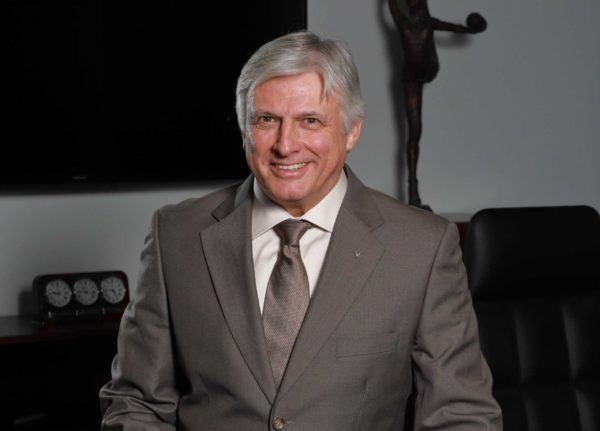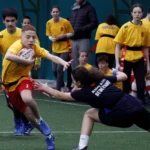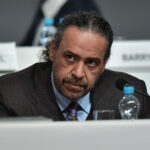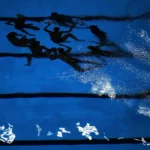Eric Saintrond
Belgium
Secretary General and Executive Director of the International University Sports Federation (FISU)
Entering FISU in 1985, Eric Saintrond likes to explain having “ a little grown up with the organization” international university sport. At its beginnings, the body then based in Brussels had only three people, plus a secretary. It now employs more than 40, spread across eight departments. Having worked in the private sector and teaching, he began his career at FISU part-time, maintaining another professional activity for the first few years. Since 2007, he has held the role of secretary general and executive director.
- 1) Since you started professionally, what has been the most significant experience of your career?
Eric Saintrond : I have experienced a lot since I arrived at FISU, because we organize the World University Games every two years. With each edition, the experience is remarkable. But I kept a very strong memory of the end of 1988, marked by the cancellation of the World University Games in Sao Paulo, Brazil. We really didn't know if FISU would be able to survive such an event and still exist the following year. We were on the verge of collapse, without staff, without Games and without perspective. We had to find a replacement solution. In just six months, we staged a World University Games in Duisburg, Germany. Only four sports were on the program, but athletics was of an exceptional level. Primo Nebiolo being president of the IAAF and FISU at the time, the stars were there. Having managed to overcome such an obstacle, FISU then began a new life, where the hosting of the Games is now guaranteed 4 or 5 years in advance.
2) How do you understand, in your role at FISU, the current situation and the uncertainty of the months to come?
I believe it is very important to maintain a global vision of the crisis. It affects sport and the sports movement, of course, but above all it affects the whole world. Our priority at FISU is to keep our national federations alive. Many have suffered since the start of the health crisis. Campuses were closed, sports activities stopped. Some national federations depend almost exclusively on revenues from the sporting events they organize in their country. With reserves for 2 or 3 years, we did not suffer too much. We were able to continue working to support the university sports movement. But our schedule looks set to be extremely busy for 2022, with the postponement of the Chengdu 2021 Summer World University Games, now moved to the same year as all our world championships. It will not be easy to manage such a schedule.
3) How would you define the way you exercise your role as a manager?
I have great confidence in my team. We remain a small structure, with a family spirit, where people should feel listened to and supported. To do this, you must know how to distribute tasks and not concentrate all activities on yourself. We must remain open, taking into account the personal problems of each member of the staff. At FISU, we have 15 different nationalities. Some employees are expatriates, sometimes a little isolated, without family. My role is to help team members evolve within the structure and encourage them to stay. Competition is tough in Lausanne, with the presence of the IOC and numerous international federations. We must maintain a spirit in which people retain a strong attachment to our organization.
4) What are the three most important values to you in your professional activity?
First of all, respect for the culture and traditions of the countries to which we go for our events. There is no FISU culture that would impose itself on host countries. The second value is therefore flexibility. It is up to us to adapt and be flexible. We must not ask people to adapt to our rules and the way we operate. Finally, we must not be afraid to trust young people. We must involve as many students as possible, without fearing their inexperience. We recruited some of them straight out of university. Today, the average age of FISU staff is very low.





























































